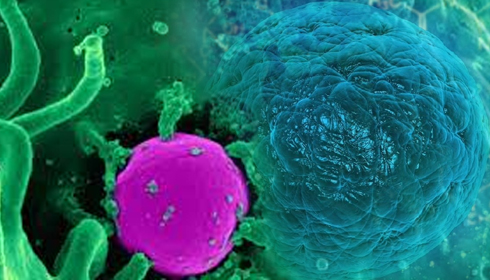
New Tool Predicts Immunotherapy Success in Breast Cancer
In a development having the potential of far-fetching consequences in predicting the success of cancer immunotherapy, researchers at the University of Texas' Southwestern Medical Centre have developed a new tool that could revolutionise cancer treatment by accurately predicting which breast cancer patients will respond to immunotherapies.
The study, led by Dr. Isaac Chan and his team, sheds light on the complex interactions between cancer cells and the immune system, offering hope for more targeted and effective treatments.
“Immunotherapies have made incredible strides in extending survival for cancer patients, but they only work about 20% of the time. To make immunotherapies more beneficial, we need to have a much better understanding of the cellular composition of specific tumors and how those cells interact with each other,” said Isaac Chan, M.D., Ph.D., Assistant Professor of Internal Medicine and Molecular Biology and in the Harold C. Simmons Comprehensive Cancer Center at UT Southwestern.
Immunotherapies have shown promise in treating cancer, but their success rates are currently limited to about 20% of patients. Dr. Chan emphasised the need to understand how different cell types within tumours interact with each other to improve the effectiveness of these therapies.
Using a method called single-cell RNA sequencing (scRNA-seq), the researchers analysed gene expression in individual cells from breast cancer biopsies. This allowed them to identify 10 distinct categories of breast cancer cells, providing a more comprehensive understanding of tumour composition than traditional classification methods.
Furthermore, the team examined how immune cells, such as T cells and natural killer (NK) cells, interact with these cancer cell subtypes. They found that certain interactions between cancer cells and NK cells could actually promote tumour growth, highlighting the complexity of the immune response to cancer.
Based on their findings, the researchers developed a tool called InteractPrint, which analyses gene expression data to predict a patient's response to immunotherapy. In a large clinical trial, InteractPrint accurately predicted which breast cancer patients would benefit from immunotherapy, offering a personalised approach to treatment.
Dr. Chan believes that this approach could be applied to other cancer types, helping doctors identify the most effective immunotherapies for individual patients. The study, published in Cell Reports Medicine, represents a significant step forward in the quest for precision cancer medicine.
The research team included first authors Lily Xu, Shao-Po Huang, and Kaitlyn Saunders, as well as other collaborators from UT Southwestern Medical Center. Their groundbreaking work has the potential to improve outcomes for cancer patients worldwide, ushering in a new era of personalised cancer treatment.